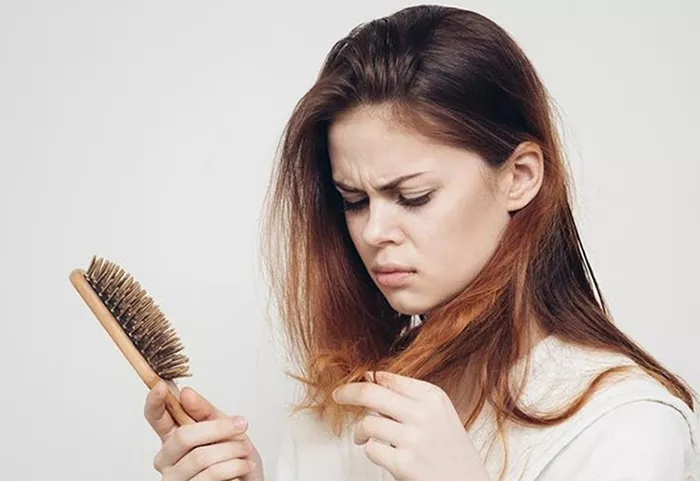As we age, various changes occur in our bodies, and hair loss is a common concern for many individuals. Age-related hair loss, also known as androgenetic alopecia or pattern baldness, is a gradual process that affects both men and women. This article explores the causes of age-related hair loss, the possibilities for reversing it, and the available treatments and strategies to manage it effectively.
Understanding Age-Related Hair Loss
Age-related hair loss is a natural part of the aging process, but it can be distressing. Understanding the underlying mechanisms of this condition can help in assessing the potential for reversal and effective management strategies.
The Biology of Hair Loss
Hair loss related to aging primarily results from a combination of genetic and hormonal factors. Here’s a closer look:
Genetics: Genetics play a crucial role in determining the likelihood of developing androgenetic alopecia. This type of hair loss is influenced by inherited genes that affect hair follicle sensitivity to androgens (male hormones).
Hormones: As people age, hormonal changes occur. In men, an increase in dihydrotestosterone (DHT) contributes to the shrinking of hair follicles. In women, hormonal imbalances related to menopause can also impact hair growth.
How Age-Related Hair Loss Progresses
Age-related hair loss typically follows a predictable pattern:
In Men: Hair thinning usually starts at the temples and crown, leading to a receding hairline and bald spot.
In Women: Hair thinning often occurs diffusely across the scalp, with a noticeable widening of the parting and general thinning rather than complete baldness.
Can Age-Related Hair Loss Be Reversed?
The question of whether age-related hair loss can be reversed depends on various factors, including the stage of hair loss, underlying health conditions, and the chosen treatment methods. While complete reversal may not always be possible, there are several strategies that can significantly improve hair density and appearance.
Medical Treatments
Several medical treatments can help manage age-related hair loss, although results may vary.
Minoxidil: An over-the-counter topical treatment that stimulates hair follicles and promotes hair regrowth. It is effective for both men and women and can slow the progression of hair loss.
Finasteride: A prescription medication that inhibits the enzyme 5-alpha reductase, reducing DHT levels and slowing hair loss. It is mainly used for men and can improve hair density and reduce shedding.
Hormone Therapy: For women experiencing hair loss related to menopause or hormonal imbalances, hormone replacement therapy (HRT) may help stabilize hormone levels and improve hair growth.
Effectiveness and Considerations
Medical treatments can be effective in managing hair loss, but they often require ongoing use to maintain results. Additionally, not everyone responds to these treatments, and they may come with potential side effects.
Hair Restoration Procedures
Hair restoration procedures offer more direct solutions to age-related hair loss.
Hair Transplant Surgery: A procedure that involves relocating hair follicles from one part of the scalp (typically the back) to thinning or bald areas. Two common techniques are Follicular Unit Extraction (FUE) and Follicular Unit Transplantation (FUT). Hair transplants can provide permanent results but require proper care and recovery.
Platelet-Rich Plasma (PRP) Therapy: A treatment where a concentration of platelets from the patient’s blood is injected into the scalp. PRP can stimulate hair follicles and improve hair density, although results may vary.
Advantages and Limitations
Hair restoration procedures can yield significant improvements in hair density and coverage. However, they are often costly and require careful consideration of potential risks and recovery time.
Lifestyle and Home Remedies
Adopting a healthy lifestyle and using home remedies can support hair health and potentially slow down the progression of age-related hair loss.
Balanced Diet: Consuming a diet rich in vitamins and minerals, such as iron, zinc, and vitamins A and D, can support hair health. Foods like leafy greens, nuts, and lean proteins are beneficial.
Scalp Massage: Regular scalp massages can increase blood flow to the hair follicles and promote hair growth.
Avoiding Harsh Chemicals: Reducing the use of harsh hair products and minimizing heat styling can prevent further damage to hair.
Benefits and Practicality
Lifestyle changes and home remedies can complement other treatments and support overall hair health. They are generally low-cost and easy to implement but may not provide dramatic results on their own.
See also: Will Vitamin D Cause Hair Loss: Things You Need To Know
Understanding Realistic Expectations
While many treatments and strategies can help manage and improve age-related hair loss, it’s important to set realistic expectations:
Partial Improvement: Complete reversal of age-related hair loss may not be achievable for everyone. Many treatments can improve hair density and slow further loss but may not restore a full head of hair.
Ongoing Maintenance: Most effective treatments require continuous use or periodic procedures to maintain results.
Consulting with Professionals
To address age-related hair loss effectively, consulting with a healthcare professional or a specialist is crucial. They can:
Diagnose Underlying Causes: Identify any underlying medical conditions contributing to hair loss.
Recommend Appropriate Treatments: Suggest suitable treatment options based on individual needs and the stage of hair loss.
Monitor Progress: Track the effectiveness of treatments and make adjustments as necessary.
Conclusion
Age-related hair loss is a common and natural part of aging, but various treatments and strategies can help manage and potentially improve the condition. While complete reversal may not always be possible, a combination of medical treatments, hair restoration procedures, lifestyle changes, and home remedies can provide significant benefits. Setting realistic expectations and working with healthcare professionals can optimize results and support overall hair health.
By understanding the options available and adopting a comprehensive approach, individuals experiencing age-related hair loss can take proactive steps toward managing their condition and enhancing their confidence.


